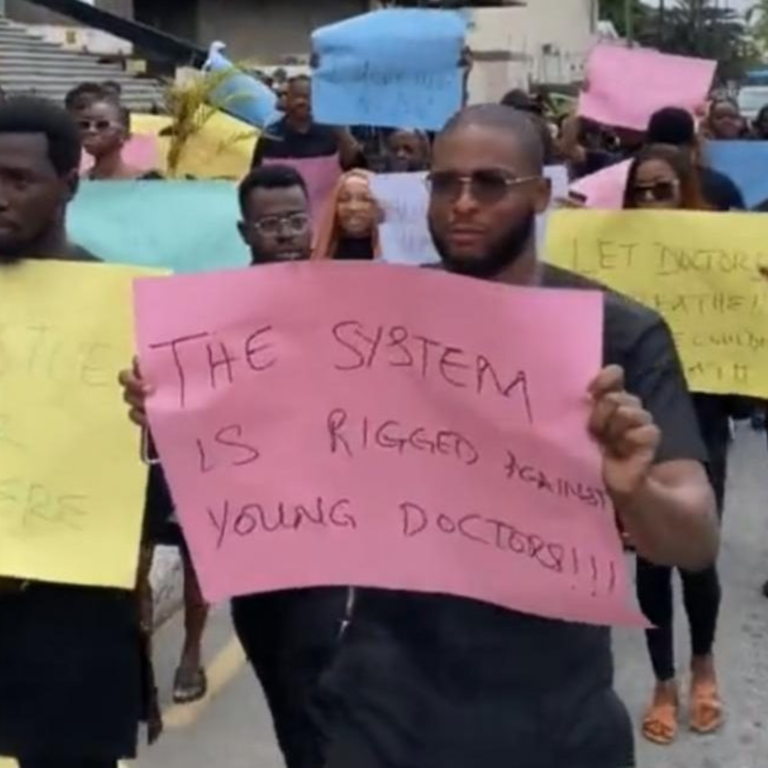The federal government has come bearing gifts and good tidings, except in their case, only a select few are entitled to it.

On March 29, 2023, Nigeria’s Minister of Labour and Employment, Chris Ngige, revealed that the federal government was planning a pay rise for civil servants to cushion inflation and increased cost of living. He also informed us that it’d take effect from January 1, 2023, meaning arrears will be paid as far back as January; and the budget was awaiting approval from President Bubu.
On April 23, 2023, the budget was approved. It was revealed that only 144,766 federal civil servants under the Consolidated Public Service Salary Structure civil servants would be getting a 40% pay rise. Lecturers under the Academic Staff Union of Universities (ASUU) are also entitled to this new salary structure, but for them, implementation will begin once a conclusion on the Collective Bargaining Agreement (CBA) is reached with the Ministry of Education.
However, this goodwill wasn’t extended to other categories of federal workers such as medical practitioners, non-academic university staff, members of the armed forces and the police force. Why? They all operate under different salary structures.
What are the salary structures in Nigeria?
The National Salaries Income and Wages Commission (NSIWC), established in 1993, governs all salary structures in the civil service. These salary structures are:
Consolidated Top Federal Public Office Holders Salary Structure (CONTOPSAL)
This structure, adopted in 2007 and still in use, determines what top government civil servants at the federal and state levels are paid.
Consolidated Public Salary Structure (CONPSS)
This determines the minimum wage, the monthly salaries of civil servants, and workers’ salaries in the Federal Civil Service Commission according to their grade levels.
Consolidated Police Salary Structure (CONPOSS)
As the name suggests, this structure determines the salaries of police officers. Also, it covers other allowances such as transport, meal subsidy, uniform maintenance, torchlight maintenance, and personal servant allowance for senior officers, among others.

Consolidated Medical Salary Structure (CONMESS)
This structure is the salary scale for every medical practitioner in the civil service.
Consolidated Health Salary Structure (CONHESS)
This structure determines the salary scale for health workers that aren’t medical doctors.
Other salary structures are the Consolidation Armed Forces Salary Structure (CONFASS), the Consolidated Paramilitary Salary Structure (CONPASS), the Consolidated Tertiary Institutions Salary Structure II (CONTISS II), the Consolidated Research and Allied Institutions Salary Structure (CONRAISS), the Consolidated University Academic Structure (CONUASS) and the Consolidated Judicial Salary Structure (CONJUSS).
Reactions to the pay rise so far
As expected, this news didn’t sit well with many medical practitioners, especially with the proposed Bill by the House of Representatives, which would ruin the japa plans of doctors and dentists.

The National Association of Hospital and Administrative Pharmacists of Nigeria (AHAPN) have described this move by the government as discriminatory and unacceptable, especially as pharmacists have not received a salary increase since 2010.
The President of the Senior Staff Association of Nigerian Universities (SSANU), Mohammed Ibrahim, also said his piece and described the exclusion by the federal government as an invitation to a crisis in public universities.

While the salary increase by the federal government is unusually thoughtful of them, the exclusion of some groups of civil servants may cause incessant strikes that may put Nigeria at a standstill.
It’s no secret that federal universities cannot afford another strike, and the healthcare sector is already struggling with brain drain. Rather than give people another reason to japa, the federal government should go back to its drawing board and think of a way to ensure no one gets left out. After all, there’s no discrimination when it comes to sapa.





